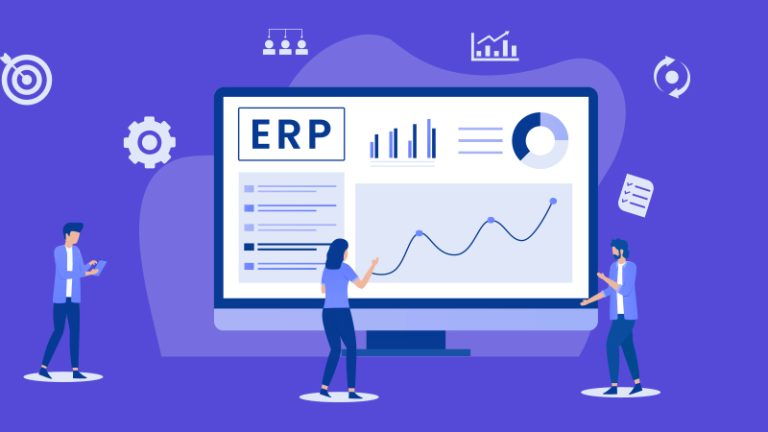Cloud ERP:
Cloud ERP is an ERP system running on a supplier’s cloud platform, not a local network that allows companies to access the Internet. ERP integrates and automates prime business and financial transactions. It provides a single data source, including supply chain management, inventory management, order management, and assistance in procurement, manufacturing, sales, and implementation. At this scale, every cloud erp solutions must be highly available and relevant to all business areas, no matter where employees work.
Cloud ERP software:
As the ERP provider is hosting and providing enterprises with a service, ERP Cloud supports the same, and even better, capabilities as on-site systems with most drawbacks, such as an upfront licensing charge. IDC says in its report “the demand for cloud erp solutions continues to grow as they can access large quantities of data and analyze it in almost real-time.” It implies that sales teams have a real-time stock insight, and financial teams are free to monitor cash flow in close contact and respond swiftly to audits or other performance data calls.
Components of cloud ERP software:
The fundamental financial and accounting functions of any cloud-based ERP program. Since then, the company has decided to implement modules and applications-oriented to industry and business needs. Available cloud ERP modules include:
- Accounting and finance
- Human capital management (HCM) and human resource management system (HRMS)
- Order management
- Supply chain management
- Customer relationship management (CRM)
- Inventory management
- Project Management
- Material Requirements Planning (MRP)

Concepts of cloud ERP software:
Some fundamental aspects of cloud ERP are necessary to understand before we go deeper into this topic:
Deployment Strategy:
ERP software can be installed on private hosted servers or acquired as a ‘service’ model. Cloud ERP capability is offered faster, but in both cases, organizations need to make time to schedule, migrate data, customize and adjust and train employees.
Cloud-based ERP:
The company resource planning software is hosted offsite on the servers of the ERP vendor and served via a web browser as a service.
On-premises ERP:
Company resource planning software is locally installed, run by IT employees internal or contracted, on computers and servers of a company. In-house management, storage, and maintenance of the software and support infrastructure.
Hosted ERP:
The ERP deployment and related infrastructure are managed by an enterprise or hosting provider.
End-to-end security:
A safe and encrypted link with its customers between a cloud-based ERP supplier.
License subscription:
A predetermined subscription charge for using the program will be paid by the company at certain times. This cost includes all maintenance and upgrades to the program and may be charged by the user or organization.







